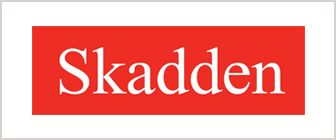Overview:
- A plan to wind down failed nationalised Austrian lender Hypo Alpe Adria Bank was approved by the European commission in September 2013 and an agreement was reached with its creditors in late 2016.
- Hypo's demise began in 2009 when, after making loses for several consecutive years, it reported it expected to make a loss of around €1 billion.
- To avert Hypo's collapse, Austria nationlised the bank, taking it over from its three shareholders - German state-owned lender, Bayerishe Landesbank (BayernLB0, which owned 67%, the Austrian federal state, Carinthia, and insurer Grawe - after the trio committed €1 billion to the lender to plug its shortfall.
- Following the bank's nationalisation, Austria negotiated a state-aid agreement with the EU, which permitted Austria to invest €5.5 billion of public funds in the bank on condition the lender's South-Eastern Europe (SEE) network, Hypo Group Alpe Adria, was sold.
- Advent International and the European Bank for Reconstruction and Development (EBRD) acquired Hypo Group Alpe Adria for €200 million.
- Austria could not declare Hypo bankrupt for fear it would force Carinthia, which had guaranteed €25 billion in bonds issued by the bank, into insolvency, so a restructuring plan was agreed with the European Commission.
- The plan involved converting Hypo into bad bank (Austria's first), Heta Asset Resolution, then writing down or selling its non-performing debt and assets.
- Heta sold of Hypo's Italian assets in 2016 for €657 million.
- In 2014 Austria attempted to write-off Hypo's subordinate debt with special legislation but this was overturned by Austria's Constitutional Court in 2015.
- In October 2016 a significant hurdle was overcome in Hypo's winding down, with a deal agreed between Austria, Carinthia and Hypo's creditors over its €11.2 billion outstanding senior and subordinate debt.
- After an initial offer to bondholders was declined, almost all (around 99%) of Heta's creditors eventually accepted a discounted offer to buy back the debt for cash or to exchange it for government-guaranteed bonds.
- Senior bond holders were offered 75% of the value of the bonds they held in cash, or securities with 90% of the value of what they were owed.
- Junior creditors were 30% cash value of the debt they were owed, or bonds or schudleschein of around 45% of the value the bonds they held.
- The transaction was one the first completed bank bail-ins under the European Union's (EU) Bank Recovery and Resolution Directive (BRRD), and Hypo is the first bank to be wound-down using the legislation, implemented in Austria in 2015 (earlier than any other state in the bloc).
- In line with BRRD, Austria and Carinthia established a holding companies - ABBAG Abbaumanagementgesellschaft des Bundes, and Kärntner Ausgleichszahlungs-Fonds respectively - to buy the debt.
- Austria contributed €6.6 billion and Corinthia committed €1.2 billion to the deal.
- Austria is expected to recoup some of the funds it has invested in Heta - around €8 billion of a total of almost €14 billion since Hypo was nationalised, including €5.5 billion in bail-in funds to Heta and €1.2 billion paid to BayernLB, its biggest creditor, in an out-of-court settlement.
- JP Morgan Securities and Citgroup Global Markets were the offer agents on the debt buy back.
- Kirkland & Ellis and Binder Grösswang (international and local counsel respectively) represented the ad-hoc committee of senior Hypo bondholders; Gleacher Shacklock was the group's financial advisor.
- Wolf Theiss represented an unnamed group of creditors.
Ben Naylor - Regional editor




